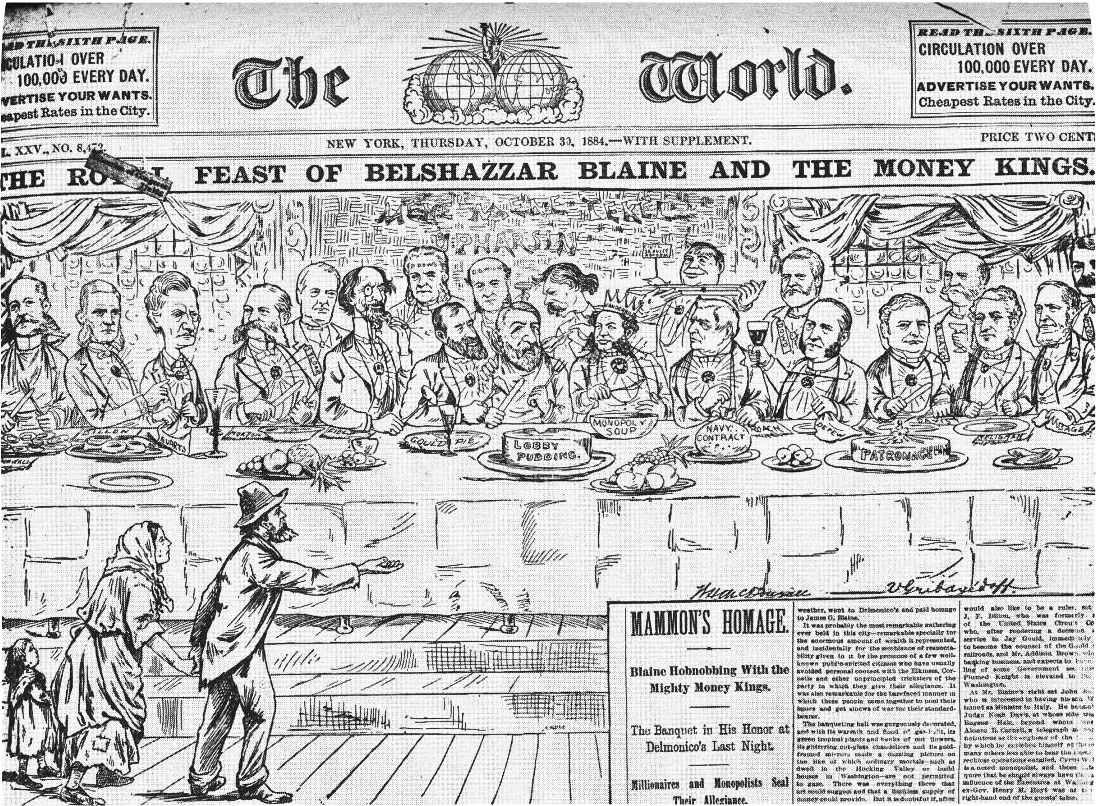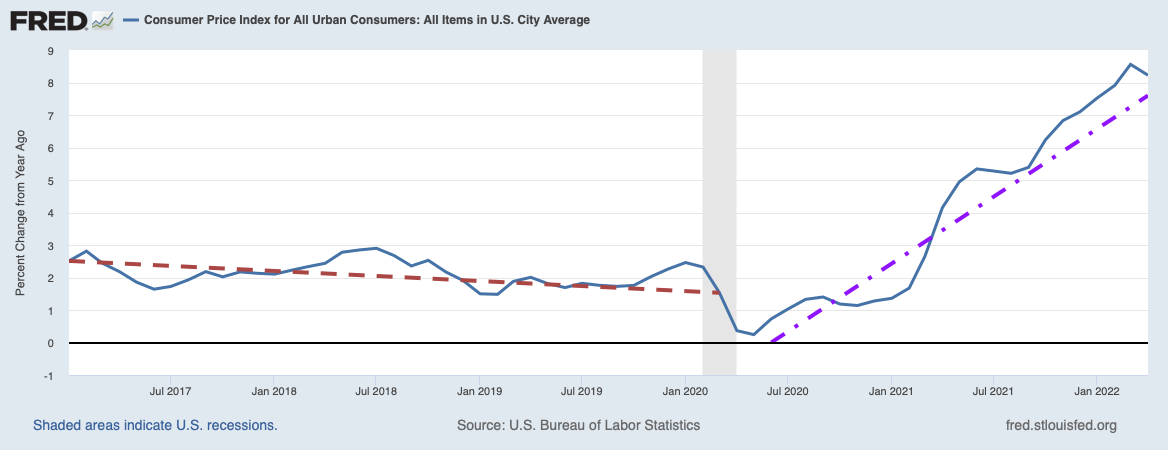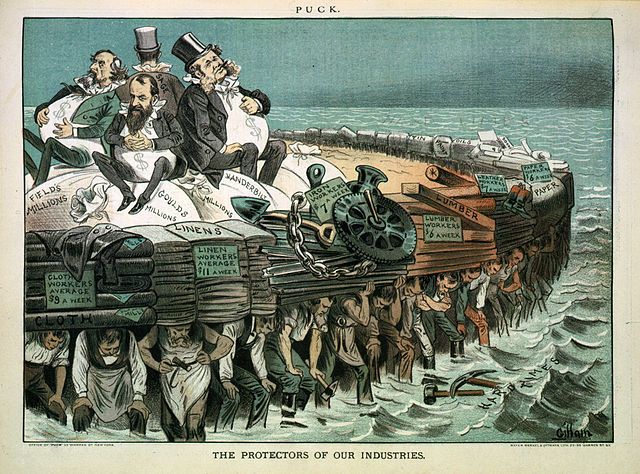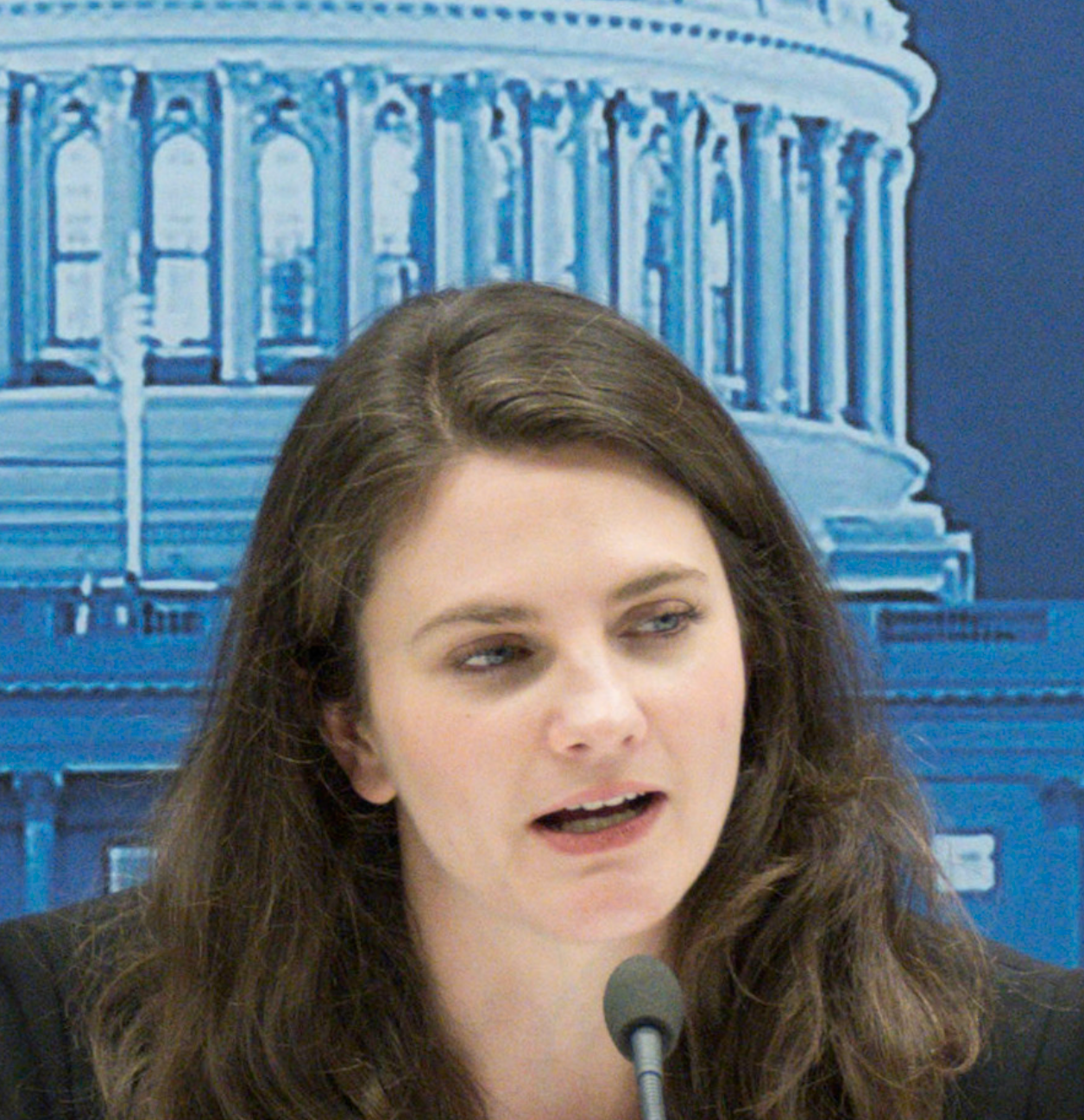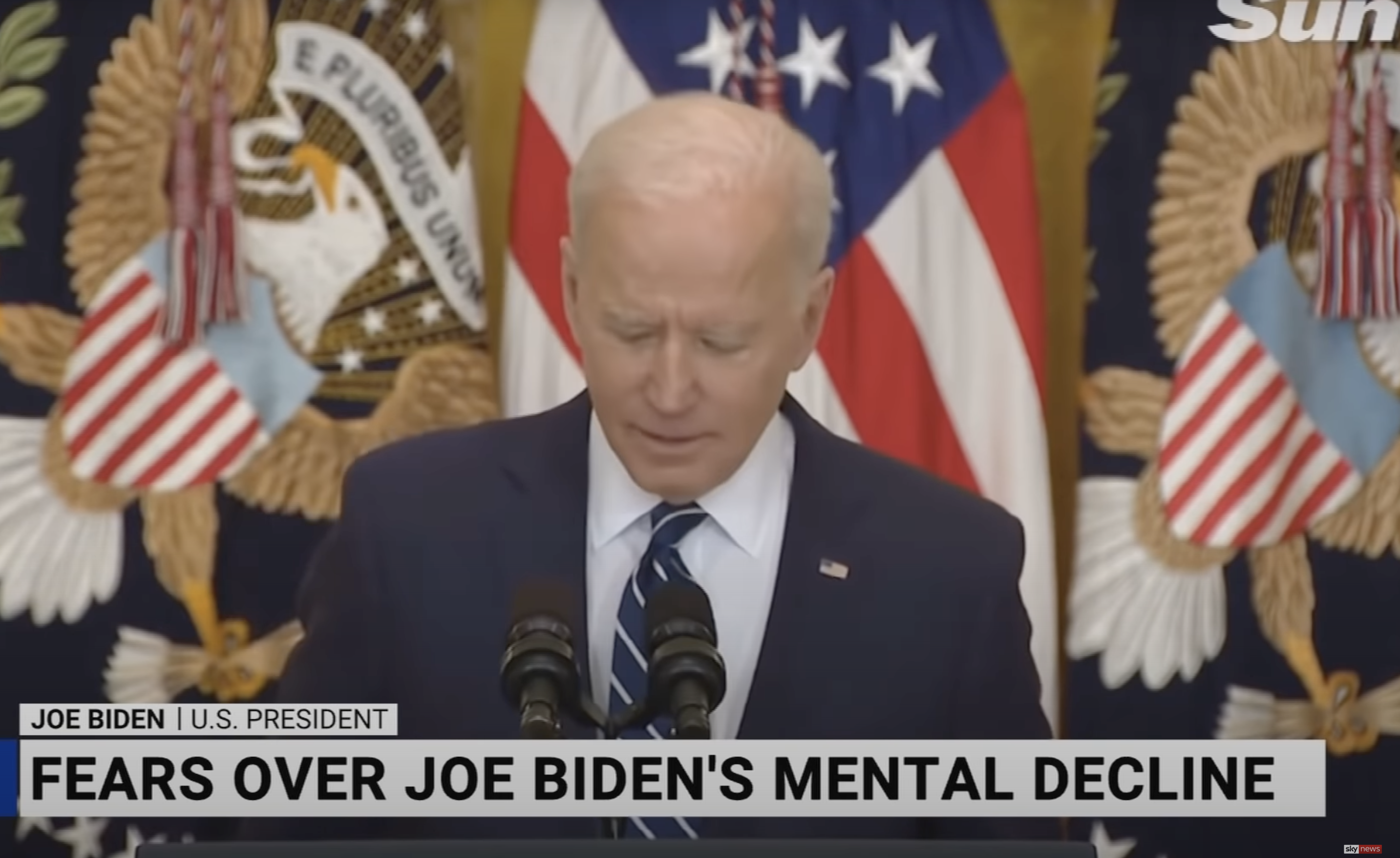How Progressive Democrats Try to Violate the Classical Laws of Economics
American progressives are afflicted by a number of biases, which cause them to devalue the classical laws of economics. Nevertheless, whether they believe in those laws or not, those laws will continue to operate. A person who does not believe in the law of gravity and steps off the edge of a cliff will end up dead at the bottom no matter what he believes. A Democratic politician may not believe in the law of supply and demand. Yet, if Joe Biden adopts policies that greatly restrict supply chains, the resulting supply shocks will shift the supply curves of many goods and services upwards to increase their equilibrium market prices. Inflation is created. This is just one example of how progressive economic policies hurt the country. Let us take a look at how Democratic Party dogmas cause many problems.
Why the Classical Laws of Economics Still Matter, and How Progressive Democrats Get Most of It Wrong
Progressive Democrats are blinded by several prejudices to the operation and importance of the classical laws of economics. The first prejudice is historical and dates to the very beginning of the American progressive movement in the late nineteenth century. Progressives back then, as well as now, hated private corporations as enemies of the common people. In the late 1800s there was a germ of truth in this attitude with corporate monopolies and price-fixing. However, those practices have been outlawed for a very long time. Between anti-monopoly court actions and some regulation of corporate practices, the tendency of corporations to become autocratic sub-governments oppressing the people has long since been suppressed. (The recent alliance of some corporate elites with the progressive Left to participate in “cancel culture” is an exception to this.)
Nevertheless, progressive Democrats have never met a corporation they could not hate. Senator Elizabeth Warren (D-Mass) is a case in point. Like Sen. Warren, Democrats are constantly demanding higher taxation and greater regulation of private companies. Yet, it is the free interaction of companies with each other and with the public that leads to the beneficent operation of the Law of Supply and Demand. It is this beneficial behavior, together with the other classical laws, that allows an economy to reach the highest possible GDP growth rates. Not only that, but contrary to the beliefs of the progressive Left, the law’s functioning with the greatest possible economic freedom leads to the most equal distribution of the GDP among the population.
If Democrats were not so blinded by their hatred of corporations, how could they change their behavior to benefit the country? One possibility is to eliminate all taxation on corporations. The standard leftist rejoinder to this is only the rich would benefit from a corporate tax reduction. Yet the rich profit from stock ownership only if they are paid dividends, or if they sell their stock at a profit. In those cases the profiting rich pay taxes either as income or capital gains taxes. So long as capital is not passed onto stockholders, the country benefits from increased corporate investments to increase production, increase employee wages and salaries, or fund innovations. Direct government taxation of corporate income reduces the ability of companies to do any of those good things. Retained earnings benefit companies only if they are used to increase their ability to produce wealth and sell it.

Image Credit: Wikimedia Commons
Another Democrat prejudice arises from the evolution of Keynesian economic thought since the Great Depression of the 1930s. During the Great Depression, economic demand from most people and companies was greatly diminished from loss of income and assets. At the time, the British economist John Maynard Keynes opined central governments could substitute for lost private demand with large increases in government expenditures. His salient idea was that of aggregate demand as the sum of consumption, company investments, and government expenditures. Because of the Great Depression, both consumption and company investments were decimated.
Ironically, the Great Depression was caused by an agency of the U.S. federal government, the Federal Reserve. In 1963 the economist Milton Friedman and his colleague Anna Schwartz published an extremely seminal work that provided the definitive explanation for the Great Depression. Entitled A Monetary History of the United States, 1867-1960, the book placed primary blame for the Great Depression on the Federal Reserve. Beginning in 1928 the Federal Reserve switched from a quantity of money theory of price stability to a real bills doctrine (see here and here) that required newly produced material goods to back all money creation. As production crashed, the Federal Reserve greatly decreased the amount of money in the banking system. According to Friedman and Schwartz, the money supply dropped by about one-third between 1929 and 1933. Not only was fractional reserve banking destroying banks’ liquidity, but so was the contraction in the nation’s money supply. The destruction of the banking system due to the Federal Reserve’s real bills doctrine was the actual cause of the Great Depression. It was the destructive action of government, not free-market capitalism, that brought about the crisis.
Because of the great reduction in economic demand, employment levels had to plummet. Keynes suggested that aggregate demand and employment levels could be sustained by a huge increase in government spending. The government could offset economic suffering by investing in public works that hired the unemployed.
Yet, Keynes was a strong believer in free-market capitalism. He believed that once the depression-era economy was stabilized, the free-market mechanism could then operate freely. He asserted,
Thus, apart from the necessity of central controls to bring about an adjustment between the propensity to consume and the inducement to invest, there is no more reason to socialise economic life than there was before.
John Maynard Keynes, The General Theory of Employment, Interest and Money
As time has passed since the Great Depression, those who call themselves Keynesians have endlessly modified and added to Keynes’ ideas. If Keynes came back to life, he would almost certainly be surprised by the economic ideas that pass for “Keynesian.” He would also be astounded that he is today associated with the left end of the political spectrum. He himself claimed that “the Class war will find me on the side of the educated bourgeoisie.” He also asserted that the Revolution “is out of date.”
Modern-day so-called “Keynesians” have much greater faith in the ability of government to direct the economy. Concerns for the health of the supply side of the economy, sometimes called “trickle-down economics,” are often ridiculed by Democrats. (This last link to a post by Ezra Klein envisions the rise of a progressive supply-side economics. One can only hope!) Government-generated demand is their sovereign remedy for just about anything that ails the economy.
The Harm Progressive Democrats Are Doing to the Economy
The Biden Administration is choosing its economic policies for reasons other than the good performance of the economy. It is limiting the ability of American industry to adjust to various supply shocks created by its own regulations, by the global pandemic, or by Putin’s Ukraine war. If the Biden administration would just get out of the way, U.S. companies themselves could eliminate or greatly ameliorate most foreign supply chain breakdowns.
As the quintessential example of policies that hogtie the American economy, nothing serves better than the Democratic Party’s war on the U.S. fossil fuel industry. During the previous Trump administration, the United States was moving toward self-sufficiency in domestic fossil fuel production. (There are arguments about whether it was actually achieved. See here and here.) In fact, the U.S. was exporting such fuels to other nations under Trump. Whether or not we had actually achieved self-sufficiency, we were moving toward it.
Then we were inflicted with the Biden Administration. On the first day of his administration, President Biden signed three executive orders that attacked domestic fossil fuel production. One was an order to halt new oil and gas leases on federal lands and waters. In recent months, due to the political uproar over energy inflation, Biden has backtracked and allowed the resumption of oil and gas leasing. However, getting a lease does not give an oil company the permission to drill.
The Biden Administration has repeatedly stated there are 9,000 unused oil drilling permits on federal lands. It has asked Congress to increase fees on leases that oil companies “haven’t used in years and on acres of public lands that they are hoarding without producing.” Yet, drilling on both federal and private lands is often stopped by complex regulatory processes (such as expanded environmental impact statements) and/or litigation before courts. All of these factors can discourage companies from making very expensive investments. This is especially true as oil company managements recall that Biden has sworn to destroy them.
The Biden Administration and its sympathizers have tried to spin the fact that oil production in Biden’s first year in office was higher than in Trump’s first year. Yet, this spin leaves out some very important facts. Domestic oil production in 2021 may have been higher than in 2017. Yet, as shown by federal statistics, 2021 production was lower than in 2018, 2019, and 2020. It is yet to be seen if production in 2022 might be lower than in 2017.
Economic shutdowns by state and local governments have largely ceased, causing huge increases in demand for all sorts of goods and services. Yet, while demand has greatly recovered, production for most of those goods and services has not. This is especially the case for fossil fuels.
As a result, inflation for fossil fuels and for products made from them has naturally skyrocketed. In the 12 months between May 2021 and April 2022, gasoline inflation averaged over the United States was 43.5 %. In Democratic party-dominated states, such as California, the inflation was much higher.
The impact of fossil fuel inflation on the U.S. is much larger than just siphoning away the wealth of anyone driving a vehicle. That particular piece of the impact is bad enough since it reduces the ability of most people to demand other goods and services. In addition, it increases the cost of transporting goods to markets by trucks or trains. Thereby, it contributes to domestic supply chain breakdowns. Also, petroleum inflation increases the costs of plastic products. Since oil is used to fuel farm tractors and to produce fertilizers, its inflation limits the ability of American farms to substitute for lost foreign food imports, especially from Ukraine.
Why the Democrats Get Most of It Wrong
There are at least three reasons why Democrats, in general, do not pay much attention to the classical laws of economics. The first is their focus is firmly on the solution of social problems. If the allocation of economic resources for social programs deprives private companies of the capital needed to produce more wealth, that is an acceptable cost in the view of Democrats. The allocation of capital by private individuals and companies under the law of supply and demand, the law of marginal utility, and Say’s law of markets is a large part of the way Smith’s Invisible Hand causes free markets to be self-correcting and self-regulating.
The second reason is the progressive Democrats’ aforementioned hatred of private companies. Because progressive Democrats tend to view private companies — especially corporations — as oppressors of the common people, the Democrats are not too worried if their policies hurt companies. The denial of capital to companies through taxes, together with the economic regulation to govern how companies use their capital, are regarded as necessities.
Thirdly, Democrats do not understand the complexity of the chaotic system that is our economy. Each company in a given industry that produces substantially the same thing faces different problems due to a variety of factors. Those factors include different locations, different local laws to observe, slight differences in product, and different availability of capital, among others. Government-imposed regulations might help some companies but hurt many others. Or those regulations could easily hurt every single one of them. Certainly, government-imposed taxes would hurt all of them. These possibilities give rise to the infamous law of unintended consequences.
Suppose that, instead of policies decreed to them, companies could mostly choose their own policies. Such freedom of choice would be especially important in the allocation of capital. Then, each company would choose the policies that would most probably favor them. More companies would prosper and fewer would fail. However, not appreciating such complexities, the federal and local governments would tend to impose a strait-jacket on the entire industry. Adam Smith’s Invisible Hand would not guide each company; government policy would substitute for the Invisible Hand. Then everyone would suffer.
Views: 1,972























